Writing is a lonely business, especially when you are a BAME poet writing from an island, far away from mainstream UK connections. Island life has its own idiosyncrasies; you are not able to fly off the rock that easily, in order to participate in UK literary festivals and events, you are part of a periphery of the literary centre. Sometimes you feel that you are like the Lady of Shalott observing Camelot through social media and television, your magic mirrors to a mainland literary world. Nevertheless, there is a self-sustaining literary environment here on the Isle of Man, with a regular Manx LitFest and with venues, organisations and media that actively promote local writing. But the island’s writing is aspiring higher as local writers are now being published by UK and international publishers.
As a BAME (Black, Asian and Minority Ethnic), writer, you write from the periphery because your concerns are different, your themes are diverse and you do not often conform to the mainstream canon. When you are writing from the periphery, it is a very long journey undertaken with a lot of heartache. I am often asked why I write in my second language, despite the fact that I have been a mainstream English Teacher for more than 20 years. I am also asked whether my work would appeal to a mainstream audience and whether I would be going to India to promote my latest collection. These experiences are not unique, but unfortunately recurrent in the career of any BAME poet.
The BAME poet has one great advantage. He/she writes from an in-between space; a space that fuses different countries/continents, cultures and languages, a space that overflows with multicultural images, motifs and symbols. However, the voice of the BAME poet takes its time getting across to the host nation and also to the country of origin. Once the voice has learned to fly, it certainly takes wing and finds its own niche in the literary sky. Award winning poets Daljit Nagra and Vahni Capildeo are epitomes of multi-dimensional voices that take wing across the world. Their poetry is a mosaic of many cultures and languages.
BAME writers also have the option of exploring the literary avenues in their country of origin or descent. I am aware that I am getting into tricky waters here as I am highlighting ethnicity and nationality, but I am not afraid to plunge into this whirlpool. Personally, I feel that a certain degree of acceptance in India [in the form of a poetry collection, Night Sky between the Stars (Cyberwit, 2015), and a book of translation from the Sanskrit, Translating the Divine Woman (Rasala, 2015)] has encouraged me tremendously and that there is nothing wrong in being an “Indian-born British poet” or “British poet of Indian origin”. My work is also part of the Indian middle school and undergraduate syllabi.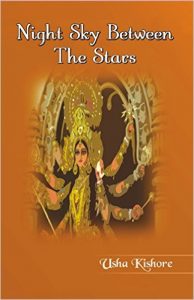
I have been on the verge of giving up on a collection many times. Even after being featured in international journals and anthologies, it was proving difficult to find a mainstream UK publisher for my first collection. It was at this point that a good friend, Debjani Chatterjee (MBE), advised me to go through the competition route. I was a bit puzzled by the suggestion as to how my work would surface in the sea of poetry competition entries, but I was encouraged that an established writer should think that my work is good enough to be featured in a prize/shortlist. After having been placed or shortlisted in poetry competitions like Ottakar’s and Faber Regional, Erbacce, Live Canon, Gregory O’Donoghue, Pre-Raphaelite Society and New Writer, I was awarded grants by the Isle of Man Arts Council and Culture Vannin towards my first collection, On Manannan’s Isle which was published locally by dpdotcom in 2014. Around this time, I was also invited to be part of a panel at the Language Cauldron Conference organised by The British Academy and The Cumberland Lodge. Here, I found hope! Here, I found that I was not alone; I heard a symphony of voices celebrating the linguistic diversity of Britain.
In 2015, I won the Exiled Writers Ink poetry competition and as part of the prize, I was given a free assessment by The Literary Consultancy. The TLC assessment by Peter Forbes was honest and helpful. The assessment had a lot of positive points but was almost brutal in its critique of the drawbacks of my sample. Peter advised me to avoid repetition, be it in theme, imagery or allusion. He suggested that I should consider reworking some of the poems and “assess how the poems work together, dropping weaker poems that reiterate themes better handled elsewhere.” Providing individual feedback on the poems, Peter also recommended that I would need to examine the cultural aspect of my collection more comprehensively. This feedback left me reeling, but with a lot of food for thought. I decided to rehash my collection, which meant getting rid of my hobby horses, reconsidering my conventionality and working with new verse forms and themes.
This year, I received an award from the London-based South Asian foundation Word Masala and an invitation to read at the House of Lords. Yogesh Patel of Word Masala also introduced me to Eyewear Publishing and Todd Swift, to whom I submitted a sample of my rehashed collection. Reading at the House of Lords is a ‘once-in-a-lifetime’ opportunity and I was honoured to have been given the Word Masala Award and the reading. The highlight of the evening, however, was when Todd Swift went up to centre stage and announced that he would be publishing my next collection. I was left speechless! I am grateful to Todd and Eyewear Publishing for coming forward and accepting a BAME island writer. Eyewear Publishing has also brought out BAME Writers like Sumia Sukkar, the first female British Muslim novelist to explore Syria in The Boy From Aleppo Who Painted the War and the poet Keith Jarrett.
As a BAME poet, I can say with conviction that the primary issue that you are faced with is the cultural context of your work, which often seems to be incomprehensible to the mainstream British canon. Other contentious topics include the interlanguage used by BAME poets, their unequivocal stance on race, national identity and cultural integrity and their views on immigration and colonisation. This non-reception by the mainstream canon compels BAME poets to conform to norms and write for a mono-cultural audience. Despite the shift of paradigm from the European centre in recent poetry awards, new BAME poets experience difficulty in getting accepted in the mainstream. They would need to work doubly hard to get noticed; they are not able to find publication in prominent journals without winning prizes or getting their books published by the mainstream. It is clear that BAME poets require both a support system to nurture their cultural tropes and a sustained mainstream interest in their work.
Despite these arguments, the UK poetry scene does hold some scope for BAME poetry. Poetry competitions are great initiatives to promote new talent and very often BAME talent is recognised this way. Similarly Arts Councils and literary festivals offer new opportunities to BAME poetry. Some organisations and programmes that promote and develop BAME talent nationally are The Complete Works Programme, Exiled Writers Ink, Commonword, Nine Arches Press and Peepal Tree Press. TLC have also been forthcoming in their support of BAME writers. Currently, a very active social media promotes these opportunities widely. With the advent of postcolonial literature as a western canon, BAME writers are now part of the UK primary, secondary and higher education syllabi. Over the years, I have taught British poets of South Asian origin like Daljit Nagra, Moniza Alvi and Imtiaz Dharker in my secondary classroom, with great pride. It gives me great pleasure to be able to relate to these poets, to be able to relate to their in-between space. I was over the moon when my work was chosen to be featured in Oxford University Press’s Read Write Inc as part of the British primary syllabus. I was delighted that the mainstream is slowly approaching my in-between space. I was doubly thrilled when someone drew my attention to a YouTube video of some primary school students reciting my poem, “Tiger”.
The peripheral status of BAME writers has been debated continuously in the last few years; history certainly has the answer to our status quo. As an ethnic writer, you are almost forced to accept that you write from the periphery and in order to move towards the mainstream, you need to move out of your comfort zone and accept new challenges. There needs to be a more collective effort, both from the writers and the mainstream, in order to sustain a culturally diverse literary canon. I do not know if diverse is the right term in the current political climate. Since BAME writing is always associated with the politics of post-colonialism, race and ethnicity, let me be brave enough to use the term to embody our differences from the mainstream.
As BAME writers, we live in our diversity in the peripheries of the mainstream; here, I am quoting or should I say appropriating the convictions of Marlon James in the recent article published by The Guardian (Alison Flood, 21 Oct 2016). Despite my earlier arguments, the recent literary prizes like the TS Eliot, the Forward and the Booker Prizes are an acceptance of diversity and a rallying call for change. With award winning writers like Marlon James and Claudia Rankine advocating for assimilation and for a shift from monocultural Euro-centricism, there certainly is a will to change, but would this change be possible in the near future? Would BAME writing be a regular and inherent component of the mainstream literary canon? Would there be a proportional representation of BAME writers in UK mainstream literary publications and events? Would UK publishers radically alter the landscape of contemporary poetry by accommodating BAME writing? These are questions for posterity…
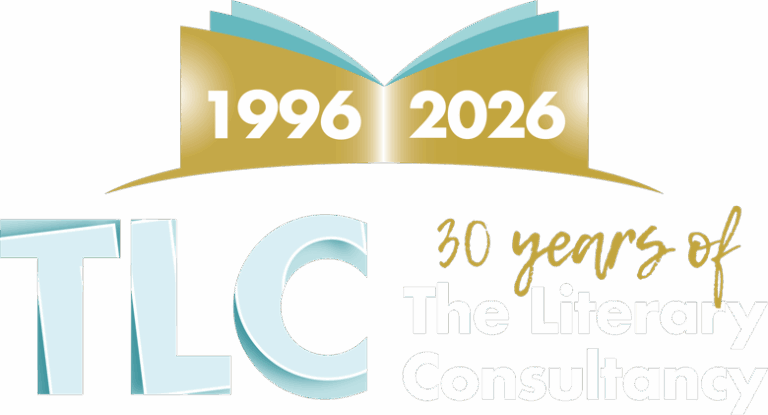
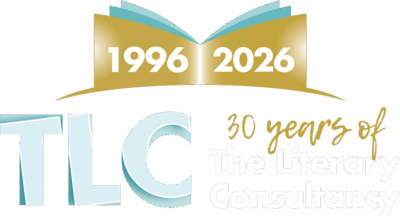
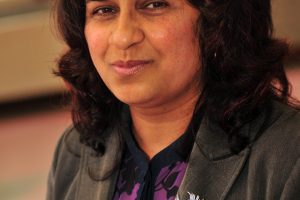

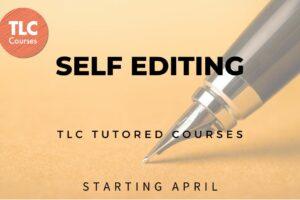


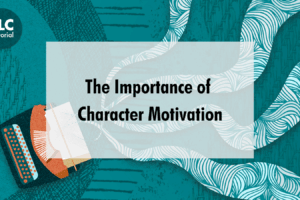

2 responses
Usha always engages her readers. Her sincere views raise the question of hyphanated discourse and postcolonial crossomgover in language and thoughts. It’s an honest outpour of an artist of higher order. Cheers! Jaydeep Sarangi
Having received the same Word Masala award and the opportunity to read in the House of Lords, I can confirm that Todd Swift’s dramatic announcement that Eyewear Publishing would bring out Usha’s next collection left us ALL feeling very excited. I shared Usha’s joy in having attracted a reputable British publisher for her poetry collection.
I always enjoy reading Usha’s work. She’s a writer after my own heart!